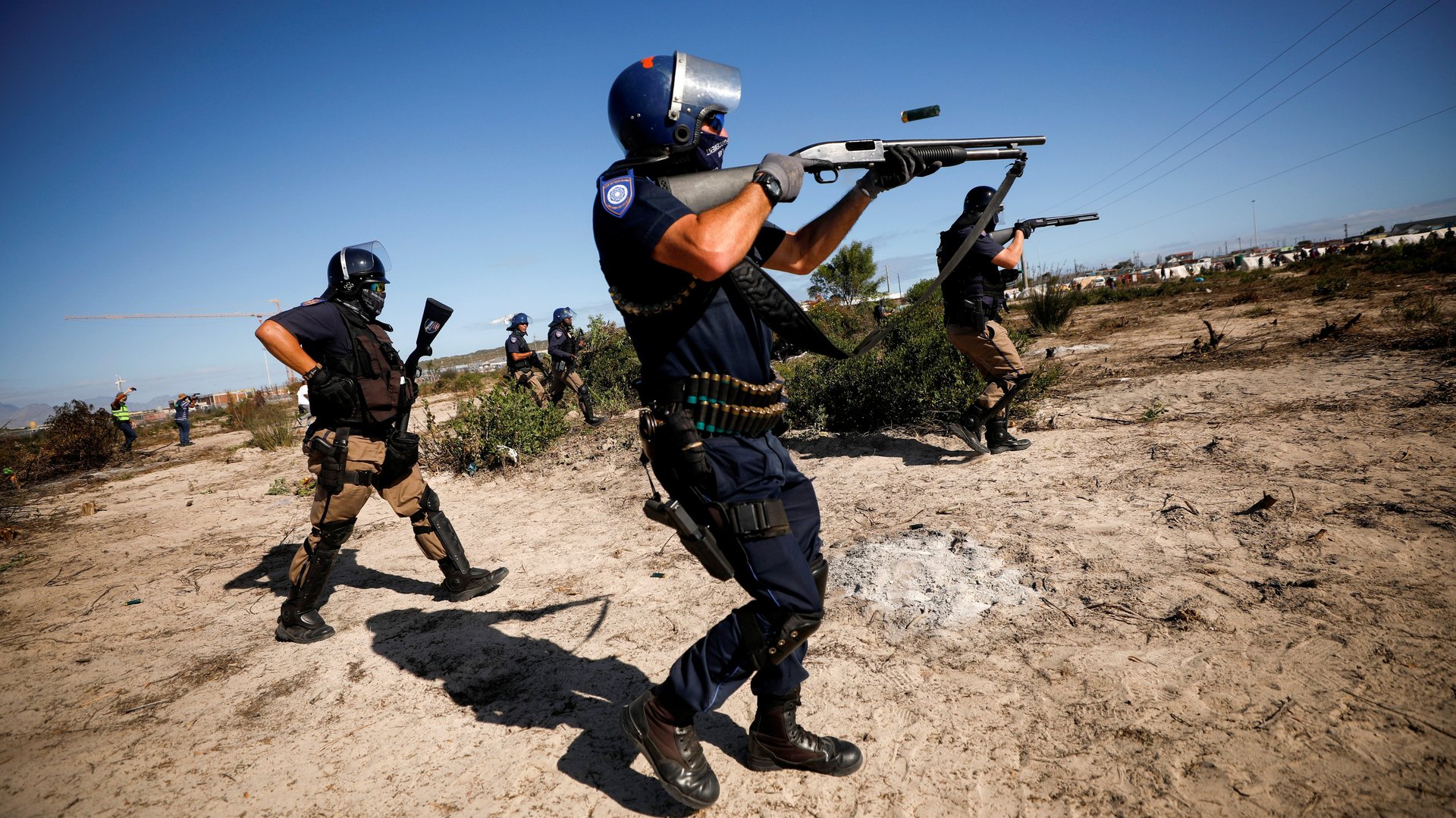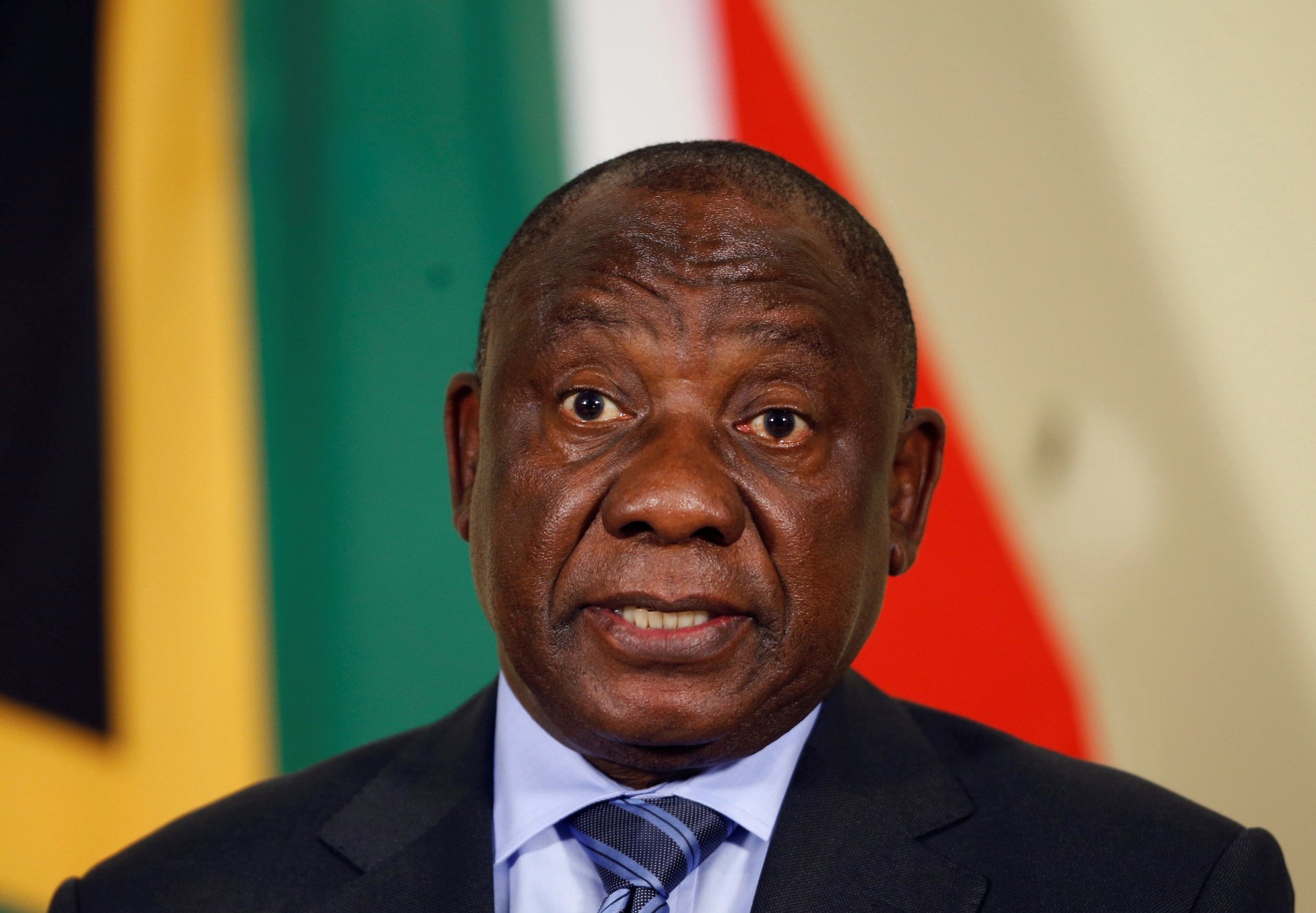South Africa is deploying its army to enforce the lockdown but also ramping up social spending
South Africa’s president Cyril Ramaphosa is set to deploy more than 70,000 members of the South African National Defence Force to join 2,300 troops already patrolling the country’s street in a bid to effectively enforce one of the strictest physical lockdowns on the continent. It is one of the largest army deployments in the country’s history.


South Africa’s president Cyril Ramaphosa is set to deploy more than 70,000 members of the South African National Defence Force to join 2,300 troops already patrolling the country’s street in a bid to effectively enforce one of the strictest physical lockdowns on the continent. It is one of the largest army deployments in the country’s history.
It is a stick to Ramaphosa’s carrot as he pledged 500 billion rand ($26 billion) as part of a special coronavirus budget on Tuesday to assist the country’s flailing economy and feed citizens, as millions struggle to cope with weeks of lockdown.
The country instituted a physical lockdown on Mar. 27, but while this has slowed the spread of the novel coronavirus there have been 3,300 confirmed cases and 58 deaths. The health emergency has also significantly hobbled South Africa’s already struggling economy.
Prior to the crisis, one in every three South Africans was looking for work, and that number is expected to have increased significantly as businesses fold and supply chains stutter in the face of the government’s lockdown. The South African Reserve Bank expects the economy to contract by more than 6% this year. This has already had a direct effect on citizens, with millions pushed into greater food insecurity.

Ramaphosa earmarked the 500 billion rand to deal with the expected deluge of cases when the government reopens the country; assist vulnerable citizens battling to eke out a living during lockdown, and to help prop up businesses.
A fifth of those funds have been designated to protect businesses and jobs, through initiatives such as the Unemployment Insurance Fund which to date has paid out 1.6 billion rand to more than 37,000 companies, Ramaphosa said.
A survey by the country’s statistics body found that four out of 10 businesses did not believe they could weather the Covid-19 outbreak.
He also introduced a 200 billion rand loan guarantee scheme, in partnership with the country’s banks, Treasury, and the South Africa Reserve Bank to support over 700,000 firms and 3 million employees by covering salaries, rent, and supplier payments.
However, the rise of social unrest is a very real threat for South Africa, in the face of job losses, reduced salaries, and food insecurity. About 50 billion rand ($2.6 billion) of this will be dispersed to citizens in the form of grants. South Africa already has an extensive welfare system, with more than 17 million people receiving social grants.
The hard physical lockdown is due to lift on May 1, but it seems unlikely that the citizens will be allowed full freedom of movement. The government would follow “a phased approach, guided by the best available scientific evidence, to gradually lift the restrictions on economic activity”, Ramaphosa said.
Sign up to the Quartz Africa Weekly Brief here for news and analysis on African business, tech and innovation in your inbox